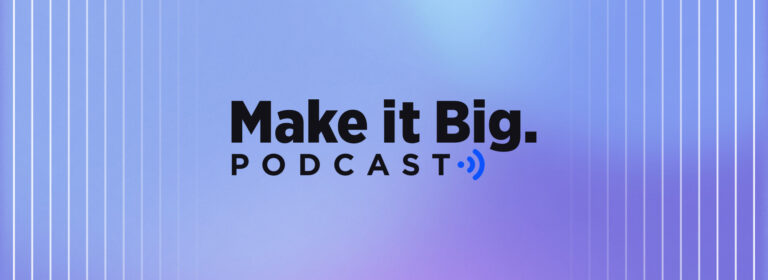Another year another algorithm update. We know Google don’t like to rest on their laurels too long, lest the internet starts doing things without their say so, and this is why we get regular/semi-regular updates to core elements of the mighty Google algorithm, a secret guarded more tightly than that of Colonel Sanders’ special blend of herbs, spices and grease. Essentially if the Big G doesn’t tweak the complex way in which it navigates, catalogues and assesses the giant cauldron of content that is the World Wide Web (remember when people called it that?) it would soon become as redundant as fax machines, Snow Patrol or Ugg boots.
The Dominance of Google
The reason Google dominates the world in which it operates so convincingly (and it still accounts for over 70% of all searches globally) is due to its chameleon-like ability to adapt to its environs, keeping ahead of the game and reacting when it finds itself under threat from nefarious types who have determined ways in which to dishonour its integrity. In much the same way as software programmers have to constantly react to vulnerabilities uncovered in their code by hackers, so must Google prevent those operating within the dark realm of SEO (as opposed to SEO’s good guys, the white hat crowd) from taking shortcuts and gaining backdoor access to the many rewards of being top of the pile.
Whilst some may question why Mountain View holds all the cards when it comes to picking and choosing who makes the most money online, it is still a free market and we seekers of knowledge/Christmas gifts/cat videos do have a choice when it comes to who presents us with the list of options from which we’ll select a lucky winner. Ultimately if Google were returning results that didn’t meet our needs we’d soon go elsewhere. How often do you drill through pages two and three of search results for any given query? If what you’re after isn’t page one Google has failed. Either that or you’ve spelled cat wrong.

When you’re number one, you’re always going to be subject to rivals chipping away at the foundations supporting your mighty throne by way of attempting to overhaul your position as lord and master of all you survey. It’s an age old business cliché but adapt or die really does ring true and this is precisely why algorithm updates tweaking the core metrics that Google uses to give weight to one site over another are an essential part of remaining the world’s premier search provider.
And So To Penguin
As if you needed telling, the Penguin algorithm update relates to the quality of backlinks pointing to a page and its domain. In a world where links can be legitimately considered currency, the ones that don’t add up are going to land you in trouble in exactly the same way as any income you have coming in that can’t be traced and accounted for will inevitably alert the tax man. Unlaundered money quickly raises suspicion and so too will irrelevant backlinks and those from disreputable sources.
You do not want a visit from HMRC auditors determined to identify the reason behind those irregular bank transfers from the Cayman Islands and you don’t want Google digging about in your backlink profile if there are questionable elements to it. In theory the easiest way to avoid potential penalties is by only gaining links from safe and sensible sources that won’t look out of place, giving your site a virtual thumbs up. In practise you don’t always have control over where your links come from.

The first iteration of the Penguin update was unleashed on the world back in April 2012 and impacted approximately 3% of all English language sites across the web. In one fell swoop hundreds of thousands of websites lost their search visibility and saw their visitor numbers decimated overnight, sending webmasters, SEO professionals and the eCommerce industry at large into meltdown as online revenues tumbled in a manner you’d expect from having your wares pulled from the display of the world’s largest shop window.
Penguin Aftermath
Whilst Google’s logic was sound its application was somewhat flawed, punishing sites without giving any explanation of its actions and offering no solution to restore the lost valuable visibility. It became apparent that brutal penalties could be dished out to decimate the traffic of once popular websites, who then had no recourse but to desperately try and clean up their frowned upon backlink profiles in the hope that their savage penalties would be lifted come the next iteration of the algorithm update.
The trouble with this of course is that nobody knows when that next update will be and you’re left to your own devices in terms of determining which are the offending links to have incurred the wrath of such a brutally uncompromising flightless bird. Thankfully it appears our friends at Google are set to address this with the release of Penguin 4.0.
What’s New with Penguin 4.0?
Although details at this point are sketchy with Google having confirmed nothing more than the fact the update is on the horizon (although they suggested we’d see it before 2015 was out), speculation has been rife and the SEO rumour mill is awash with the very probable theory that Penguin 4.0 will be the first iteration of the algorithm update to assess sites and dish out penalties in real time. In practical terms this is a natural evolution that will benefit both Google and the sites it helps and hinders.
Broadly speaking, if a site owner receives a penalty for unsavoury links they can react to remove or disavow those links and assuming they’ve correctly binned the offending links their recovery should be swift. Hey presto, Google doesn’t seem so frightening anymore. Apart from their army of militaristic humanoid robots of course.
Follow my contributions to the blog to find out more about the latest developments in SEO, or sign up to the ThoughtShift Guest List, our monthly email, to keep up-to-date on all our blogposts, guides and events.






